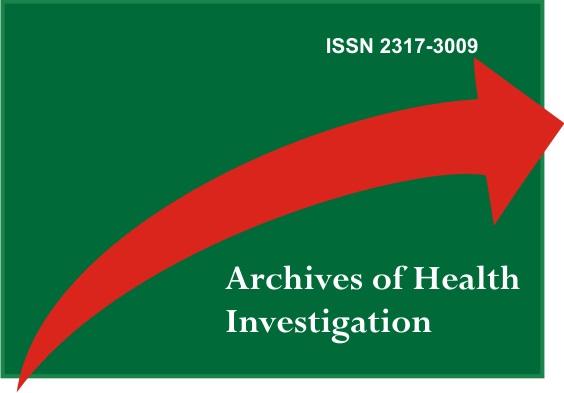The Influence of a Carbohydrate-Rich Food in the Dental Caries Formation Process: a Literature Review
DOI:
https://doi.org/10.21270/archi.v11i4.5133Keywords:
Dental Caries, Dietary Carbohydrates, Dental PlaqueAbstract
Introduction: Caries is a multifactorial, non-communicable, sacro-dependent and dynamic disease, in addition to biological factors, behavioral, psychosocial and environmental aspects are part of its etiology. Objective: To evaluate the influence of a diet rich in carbohydrates for the process of formation of dental caries. Methodology: Through a literature review referring to PubMed, SCielo and Google Scholar journals, the keywords used were “Dental caries”, “Dietary carbohydrates”, “Biofilm”, present in the Health Sciences Descriptors (DeCS). Results: According to In the analyzed literature, the authors converge in the sense that the food rich in disaccharide, sucrose, is decisive in the cariogenic process, in addition, it is inferred that the correct hygiene dismantles the biofilm and attenuates the formation of this pathology. Conclusion: Caries is a sucrose-dependent disease, but it can be eradicated with guidance to patients on diet care and proper oral hygiene.
Downloads
References
Gambhir RS, Sohi RK, Nanda T, Sawhney GS, Setia S. Impact of school based oral health education programmes in India: a systematic review. J Clin Diagn Res. 2013;7(12):3107-10.
Selwitz RH, Ismail AI, Pitts NB. Dental caries. Lancet. 2007;369(9555):51-9.
World Health Organization. Sugars intake for adults and children. Geneva: WHO; 2015
Feijó IS, Iwasaki KMK. Cárie e dieta alimentar. Revista UNINGÁ Review. 2014;19(3):44-50.
Featherstone JDB. The continuum of dental caries—evidence for a dynamic disease process. J Dent Res. 2004;83:39–42.
Brasil. Ministério da Saúde. Secretaria de Atenção à Saúde. Secretaria de Vigilância em Saúde. SB Brasil 2010: Pesquisa Nacional de Saúde Bucal: resultados principais. Brasília: Ministério da Saúde; 2012.
Lima JEO. Cárie dentária: um novo conceito. Rev Dent Press Ortodon Ortop Facial. 2007;12(6):119-30.
Kriger L, Moysés SJ, Moysés ST, Morita MC. Odontologia Baseada em Evidências e Intervenção Mínima em Odontologia, Série Abeno: Odontologia Essencial – Temas Interdisciplinares. São Paulo: Artes Médicas. 2016;
Costalonga M, Herzberg MC. The oral microbiome and the immunobiology of periodontal disease and caries. Immunol Lett. 2014;162:22-38.
Moura SMS, Oliveira IM, Leite CMC, Conde Júnior AM. Dieta e Cárie Dental em Escolares de 10 a 14 Anos na Cidade de Picos, Piauí. J Health Sci. 2015;18(1):14-8.
Okoye LO. Caries experience among school children in South-Eastern Nigeria. Caries Res. 2010;44:171.
Lisboa IC; Abegg C. Hábitos de higiene bucal e uso de serviços odontológicos por adolescentes e adultos do Município de Canoas, Estado do Rio Grande do Sul, Brasil. Epidemiol Serv Saúde. 2006;15(4):29-39.
Makuch A, Reschke K, Rupf S. What makes motivation so difficult? Stomatologie. 2011; 108(7):103-7.
Alves GC, Vasconcelos MMVB. Motivação, cooperação e comunicação na promoção de saúde bucal e prevenção da doença cárie. Int Dent J. 2008;7(2):116-24.
Massoni ACLT. Saúde bucal infantil: conhecimento e interesse de pais e responsáveis. Pesqui Bras Odontopediatria Clín Integr. 2010;10(2):257-64.
Gill P, Stewart K, Chetcuti D, Chestnutt IG. Children’s understanding of and motivations for toothbrushing: a qualitative study. Int J Dent Hyg. 2011;9(1):79-86.
Maia MB, Oliveira KFG, Dumaraes DRF, Oliveira, EC, Lima PM, Capuchinho PFM, Andrade CAO. Motivação no controle do biofilme dental em pacientes do Centro De Especialidades Odontológicas: Relato de experiência. Intercâmbio. 2016;7:476.


